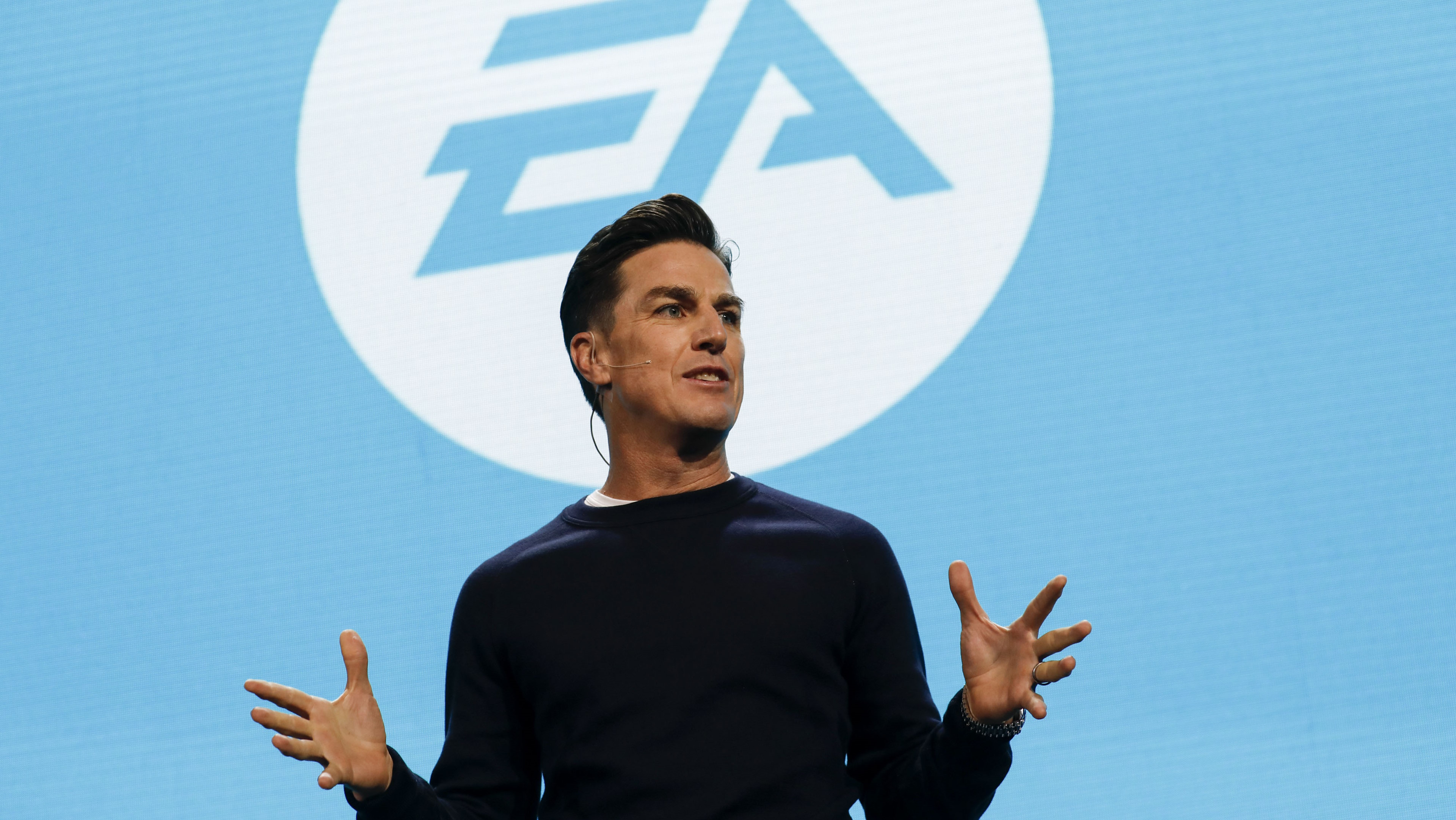Former Dragon Age lead writer David Gaider pours scorn on EA's AI dreams: 'What they took as excitement was really a veiled wail of despair'
Gaider remembers how excited execs were for live service games like Anthem, and reckons they're just repeating a pattern.

EA sure is keen to start using AI in all its games. So keen that CEO Andrew Wilson can't stop chatting about it: In March he was envisioning a bleak future where 3 billion people were using it, and just recently he was regaling investors with the news that EA devs apparently have a "hunger" to begin using the tech themselves.
But maybe take Wilson's words with a grain of salt, because over on Twitter, former Dragon Age lead writer David Gaider had some fierce criticisms of the EA boss and his breathless hosannahs to AI. Responding to Wilson's comments, Gaider wrote that "the 'hunger' referred to here is the allure of a spreadsheet where the labour costs suddenly show as a teeny tiny bar compared to the other bars and a bunch of executives around a table nod and repeat 'ROI' and 'good, yes, good' over and over again.
"They want you to believe the devs under them are super stoked to work generative AI into their processes," continued Gaider, "but I assure you what they took as excitement was really a veiled wail of despair not unlike the time that team was informed of their new 'really cool' live service mandate."
Which is both brutal and, I have to say, incredibly believable. Gaider is a BioWare veteran who left the company—and its owner, EA—in 2016. His name is on all sorts of RPG classics: Dragon Age, Baldur's Gate 2, KOTOR, and Neverwinter Nights. It's also on Anthem, BioWare's live service shooter that withered on the vine in 2021.
Gaider wrote for Anthem before leaving BioWare, though the game's story was rebooted after he left, and it's probably that ill-fated live service venture he's referencing as part of a previous doomed "mandate" from executives. Gaider describes the process in a reply to another tweet:
"The execs heard about the New Thing™ and everyone (meaning all the Yes Men they've mentioned it to) think it's super exciting, so now they're going to parrot it at the folks doing the actual work… at least until reality inevitably manifests."
For Anthem, reality manifested when the game came out to lukewarm reviews and died a few years later. For AI, well, who knows? For all the rabbiting on about the unrivalled potential that AI offers developers, it's not really made a big splash in games yet, at least not in a way that's visible to players (in a GDC survey, after all, 31% of devs said they're already using AI in some capacity), so it's hard to say what the future is.
The biggest gaming news, reviews and hardware deals
Keep up to date with the most important stories and the best deals, as picked by the PC Gamer team.
I have to say, though, I'm inclined to agree with Gaider. While I don't doubt AI is here to stay in some capacity—and let's hope labour organisation and struggle leaves it firmly in the hands of workers, not bosses—Wilson's proposed world in which billions of people are occupying some new AI plane of reality seems like a bizarre pipe dream. I wouldn't be surprised if we one day look back on executive hype for the tech in a similar way we now look at, well, games like Anthem.

One of Josh's first memories is of playing Quake 2 on the family computer when he was much too young to be doing that, and he's been irreparably game-brained ever since. His writing has been featured in Vice, Fanbyte, and the Financial Times. He'll play pretty much anything, and has written far too much on everything from visual novels to Assassin's Creed. His most profound loves are for CRPGs, immersive sims, and any game whose ambition outstrips its budget. He thinks you're all far too mean about Deus Ex: Invisible War.

